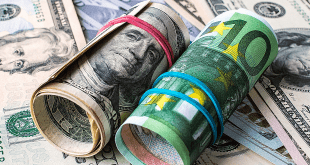European stocks opened higher on Friday, with market sentiment buoyed by the prospect of de-escalating U.S.-China trade tensions. The DAX index in Germany gained 0.2%, the CAC 40 in France climbed 0.3%, and the FTSE 100 in the U.K. rose 0.1% as investors cheered the confirmation of a high-stakes meeting.
Trade Dialogue Revived as US-China Leaders Set to Meet
The White House confirmed that President Donald Trump will meet Chinese President Xi Jinping next week during the APEC summit in South Korea. This development offered a significant relief to global markets, which had been rattled by recent tit-for-tat escalations, including Washington’s threat of 100% tariffs and Beijing’s curb on rare earth materials exports. The planned dialogue offers a critical opportunity for the world’s two largest economies to ease trade disputes that have clouded the global outlook for months.
Separately, President Trump announced that trade negotiations with Canada had been terminated, citing a “fraudulent” Canadian advertisement.
Corporate Earnings Highlight Defense and Healthcare Strength
The corporate earnings season continued to drive individual stock movements in Europe:
- Sanofi (EPA:SASY) reported a better-than-expected rise in profit, largely lifted by robust demand for its blockbuster skin and asthma drug, Dupixent.
- Defense stocks showed strength, with Swedish defense group Saab (ST:SAABb) raising its sales guidance after reporting a rise in third-quarter profit, a clear reflection of soaring global military spending.
- French aerospace and defense supplier Safran (EPA:SAF) also raised its full-year 2025 outlook, boosted by record production of the LEAP engine and a strong performance in its civil engine aftermarket services.
- Swiss elevator and escalator maker Schindler (SIX:SCHN) lifted its 2025 EBIT margin guidance after higher operating profit, though the company noted weakness in new installation orders due to foreign exchange effects and softer demand in China.
- In contrast, industrial chemicals maker Sika (SIX:SIKA) reported a drop in nine-month sales and announced plans for structural changes, including cutting up to 1,500 jobs in persistently weak markets.
Economic Focus Shifts to US Inflation
In regional economic news, the U.K. retail sales for September surprised economists by rising 0.5% month-on-month, suggesting British consumers may be weathering the economic headwinds better than anticipated.
However, the main macroeconomic event remains the delayed release of the U.S. Consumer Price Index (CPI) for September, which was finally made possible despite the ongoing U.S. government shutdown. The U.S. core consumer price index is widely expected to hold steady at 3.1%. A reading in line with consensus is unlikely to impact the market’s strong expectation of a 25-basis-point rate cut from the Federal Reserve next week.
Crude Oil Poised for Big Weekly Gain
Oil prices saw a slight retreat on Friday but remained on track for a hefty weekly gain of around 7%, which would be the largest since mid-June. The surge was fueled by the Trump administration’s new sanctions targeting Russia’s two biggest oil companies, Rosneft and Lukoil, over the war in Ukraine. Since these two companies account for over 5% of global output, the move instantly raised supply concerns. Brent futures fell 0.7% to $65.53 a barrel, and U.S. West Texas Intermediate crude futures fell 0.7% to $61.39 a barrel, following a jump of more than 5% on Thursday.
 Noor Trends News, Technical Analysis, Educational Tools and Recommendations
Noor Trends News, Technical Analysis, Educational Tools and Recommendations





